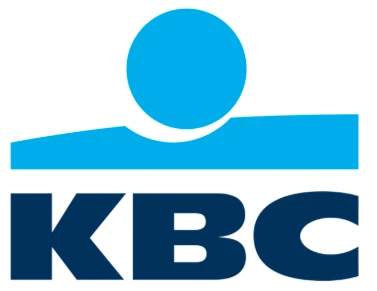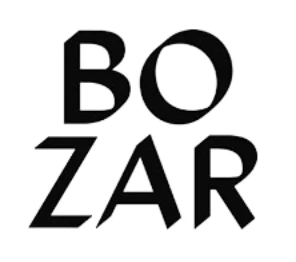
YOUR NEW JOB AWAITS YOU HERE!
OUR JOB OFFERS



Are you a candidate? Join Art'work Intérim!
Are you a hospitality professional looking for new opportunities? Art'work Intérim is recruiting skilled talents to work in prestigious establishments. Join our team and gain access to a network of opportunities in the hospitality sector.
Take the first step towards a rewarding career with Art'work Intérim!
Develop Your Skills
Hospitality Professional? Take Your Skills to the Next Level with Art'work Academy!
Discover our training programs designed to refine your expertise and help you excel in prestigious establishments.

Art'Work Academy
Career Change
Looking for a Fresh Start? Art'work Academy supports your career change into the hospitality sector! Explore our tailored training programs to gain the necessary skills and start a rewarding career in reception, kitchen, and service.
View Training Programs
WHO ARE WE?
ART’WORK SPECIALIZES IN BOTH TEMPORARY AND PERMANENT RECRUITMENT, PRIMARILY IN THE HOSPITALITY SECTOR, WHILE ALSO COVERING INDUSTRIES SUCH AS RETAIL, TRANSPORTATION, FASHION, MOVING SERVICES, AND MORE. WE OFFER TAILORED SOLUTIONS THAT HIGHLIGHT THE POTENTIAL AND PROFESSIONAL GROWTH OF OUR TEMPORARY WORKERS.
INSPIRED BY INDUSTRY LEADERS, WE EMPHASIZE FLEXIBILITY AND PERSONALIZED SUPPORT FOR OUR STAFF WHILE ENSURING THEIR FULL SOCIAL SECURITY COVERAGE.
Our News

12/01/2025
What is a recruiter ?
A recruiter helps companies find the right profiles for their vacant positions. They search for qualified candidates and guide them throughout the recruitment process. Temp consultants, also known as recruiters, perform a similar task by searching for candidates for the companies they collaborate with.
The term recruiter comes from English and refers to a person responsible for hiring staff. In summary, a recruiter is an intermediary between a job candidate and a company. Here are the main tasks of a recruiter:
Searching for job offers
The recruiter works closely with the company to understand its specific needs. They then write the job offer, which describes the tasks to be performed, the required skills, and the proposed salary conditions.
Searching for candidates
Once the job offer is published, candidates can apply. However, a recruiter does not just wait for applications. They also conduct active searches to find matching profiles. When they identify a potential candidate, they reach out to confirm their interest in the position.
Screener the candidates
Screening is the process of reviewing candidates’ profiles. This step begins with analyzing their CVs, followed by interviews. In some cases, the recruiter may also administer tests to evaluate the candidate’s skills.
Presenting candidates
If a candidate passes the selection process, they are presented to the client company. The recruiter then acts as an ambassador and tries to convince the client to hire the candidate. They also remain the point of contact between the candidate and the company throughout the process.
Contract and salary management
If the interview with the client goes well, the recruiter handles the administrative part, depending on the prior agreement with the company. This may include a temporary contract at first or a direct hire on a permanent contract.
How is a recruiter compensated?
The recruiter is paid when one of their candidates is hired by a client. The client then pays an agreed-upon amount, which never comes from the candidate and is not deducted from their salary.

10/01/2025
What does a temporary work contract contain?
You’ve secured a job through a temp agency? It’s now time to sign your contract!
This document contains many important details. But what do they really mean? Here’s what you need to know:
The temporary work contract must include the following information:
1. The name of the user
This is the name of the company where you will be working. This is your future employer in the field.
2. The reason why the user is hiring a temp worker
Companies must justify why they need a temp worker. The main reasons are as follows:
Replacement: To replace a permanent employee during their absence (sick leave, maternity leave, etc.).
Temporary increase in activity: If the company has a temporary surge in work, they may need more manpower.
Exceptional work: For occasional tasks or ones that are not part of the company’s regular activities.
Professional insertion: A temp job with the goal of obtaining a permanent contract after a positive evaluation.
Note: Even if your contract is not aimed at professional insertion, you can still secure a permanent contract if you prove yourself.
3. The job title
This refers to the exact position you will hold within the company.
4. Workplace location
The address of the company where you will be assigned.
5. Work schedule regulations
In this section, you’ll find the hours you’ll work each day. This often includes a weekly schedule with the start and end times of your workday.
6. Salary
The amount of your gross salary (before taxes) is specified in the contract. If you want to know how much you will earn net, you can use an online calculator.
Quick calculation:
Multiply your hourly wage by the number of hours you work each week to get your weekly salary.
Then multiply that amount by 4.33 (since there are on average 4.33 weeks in a month) to get your approximate monthly salary.
7. Other benefits you are entitled to
Here, you will find information on travel allowances, bonuses you are entitled to (such as for night or evening shifts), as well as the amount of meal vouchers or other benefits.
With this information, you will know exactly what your temporary work contract should contain and how to read it correctly. If you have any doubts or questions, don’t hesitate to ask your temp consultant for clarification!

10/01/2025
What is temporary work?
Temporary work involves performing professional activities temporarily for a company through a temp agency. The duration of the assignment can range from a day to several months, or even longer. In Belgium, only licensed temp agencies can offer this type of service. Temporary work is commonly used to replace a permanent employee, respond to a temporary increase in workload, or carry out specific projects.
In summary, temporary work is a temporary job where the temp agency recruits you and sends you to work for a company for a set period. Although this period is usually limited, more and more companies offer the possibility of transitioning to a permanent contract at the end of the temp job, provided the performance is satisfactory.
Main characteristics of temporary work:
- It’s a temporary job.
- It’s a legal way to provide workers to companies.
- Only licensed temp agencies can operate in Belgium.
The players in temporary work:
Temporary work involves three parties:
- The temp agency: It recruits and sends you to a company for a temporary assignment.
- You, the temp worker: You sign a contract with the temp agency and perform your assignment at another company.
- The client company: It calls on the temp agency to temporarily hire a worker to meet a specific need.
Situations where temporary work is allowed:
The law regulates the use of temporary work and specifies when it is permitted:
- Replacement of a permanent employee: When a permanent employee is absent.
- Temporary increase in workload: For example, during peak periods.
- Exceptional work: For tasks that are out of the ordinary (e.g., fairs, moving).
- Inbound flow: A company can hire a temp worker for a vacant position with the intention of hiring them permanently after an evaluation period. For example, a construction company hires a temp for a specific project with the possibility of keeping them long-term.
- Artistic missions: For example, for shows or one-time events, like actors or technicians for a theater production.
- Employment programs for long-term unemployed people: As part of programs aimed at helping long-term unemployed individuals gain professional experience through temp assignments to increase their chances of securing stable employment.
What can you do as a temp worker?
Temporary work offers a wide variety of opportunities, allowing you to explore different sectors and develop new skills. In collaboration with your temp consultant, you can find assignments that match your expectations and career aspirations. If necessary, the consultant can even offer training to improve your skills and facilitate your integration into the labor market, a service you can find through platforms like Travi.

09/01/2025
When do you receive your salary as a temp worker?
As a temp worker, you are paid every week, usually the week following the one in which you worked. The day you receive your salary varies depending on the temp agency, but it often falls in the second half of the week.
Unlike permanent workers who are paid monthly, temp workers receive their salary on a weekly basis. However, before your salary is paid, the temp agency must first verify your work hours.
Verification of work hours
The agency contacts the client company to confirm the number of hours you actually worked and when. Although these hours are listed in your contract, it doesn’t necessarily mean you worked exactly that number of hours. There may be slight variations, and it is crucial that you are paid for the time you actually worked. This verification takes place at the beginning of the week following the one during which you worked.
Once all the work hours are validated, the temp agency proceeds with paying your salary. If you notice any errors on your payslip or if you think there’s an issue with your payment, it’s important to contact the temp agency as soon as possible to resolve the situation.


















